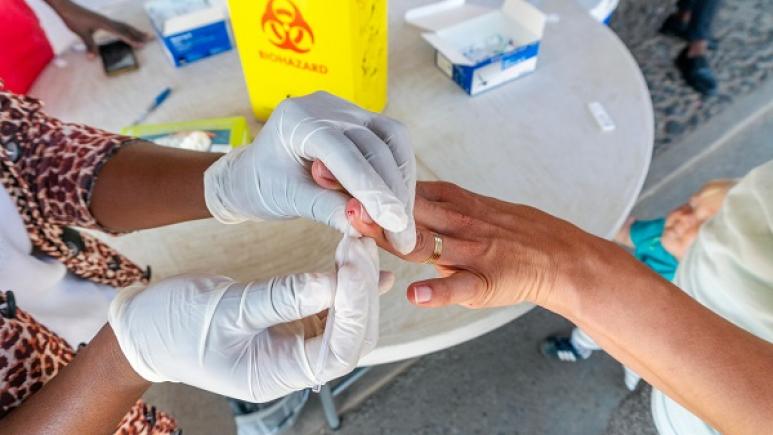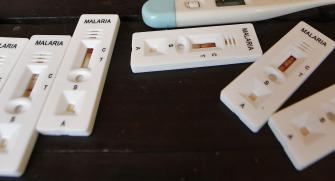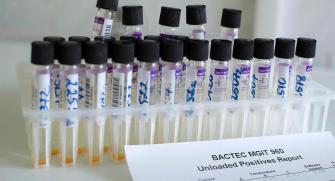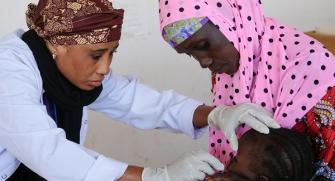Challenges to overcome malaria
What is the global malaria situation?
 Matthew Coldiron: There were 241 million new cases of malaria and 627,000 deaths in 2020, according to the WHO World Malaria Report. 96% of the cases occurred in the African region. And six countries-Nigeria, DRC, Uganda, Mozambique, Angola and Burkina Faso-accumulate 55% of all cases globally. Children are the main victims with 77% of malaria deaths occurring in children under five.
Matthew Coldiron: There were 241 million new cases of malaria and 627,000 deaths in 2020, according to the WHO World Malaria Report. 96% of the cases occurred in the African region. And six countries-Nigeria, DRC, Uganda, Mozambique, Angola and Burkina Faso-accumulate 55% of all cases globally. Children are the main victims with 77% of malaria deaths occurring in children under five.
The COVID19 pandemic has severely disrupted prevention interventions and access to care, halting the progress made over the past several years. The fight against malaria is therefore far from over. In addition, the diminished sensitivity of insecticides used to impregnate mosquito nets, mutations in the parasite that lead to resistance to treatment, and diagnostic test failures are all problems that hamper elimination efforts.
Beyond mosquito nets and insecticides, what preventive actions exist?
MC: In areas of the Sahel where transmission is highly seasonal, seasonal malaria chemoprevention (SMC) is offered to children aged 3 to 59 months. It consists of administering a full course of treatment with sulfadoxinepyrimethamine (SP) and amodiaquine (AQ) at monthly intervals, starting at the beginning of the transmission season and continuing until the end (usually three to four months). 33.5 million children benefited from I in 2020. WHO has issued new guidelines to provide more flexibility in the administration of SMC to adapt it to the specificities of the countries concerned. One of the risks with SMC is that malaria parasites become resistant to the drugs used. Epicentre is carrying out a study in Chad in the Moïssala district to evaluate the genetic markers of resistance to sulfadoxine-pyrimethamine and amodiaquine and track their evolution since the start of SMC implementation in 2012.
Mass drug administration approaches are also being tested in several settings. The principle is to treat all people in a defined area whether they are symptomatic or not. This approach reduces the level of parasite in the population and therefore transmission. Thus, in the DRC, in the Angumu area, Epicentre has shown a very strong decrease in mortality and morbidity in children under 5 years of age in areas where mass drug administration is practiced, compared to areas where it is not. These interventions are effective, but they are costly and need to be renewed regularly.
An vaccine called RTS,S/AS01E (RTS,S) is also now available to prevent malaria. Early clinical trials of this vaccine reported comparable efficacy to SMC. However, the combination of the two reduced malaria incidence and child deaths by approximately 70% compared to one or other mode of prevention used separately. Behind the hope lies the question of the human and financial resources needed to implement such a strategy.
What are the other challenges in terms of malaria research?
MC: There is an urgent need to develop new point-of-care tests. The rapid diagnostic tests for malaria currently available have certainly improved access to diagnosis in endemic countries. But they are now proving to be less and less effective. Most of them detect the presence of two histidine-rich proteins (pfhrp2/3 ) of Plasmodium falciparum, and their sensitivity is seriously threatened by the emergence of parasites lacking this protein.
There is also the question of how long it takes for each test to become negative after the patient has been treated and recover. Epicentre evaluated several types of rapid diagnostic tests (including HRP2 and pLDH) to see which are best suited to different settings. HRP2 tests continued to test positive for up to six weeks after treatment, suggesting that they should be avoided in areas of high transmission where early reinfection would be common.
While long-lasting insecticide-treated nets have been effective in reducing malaria in sub-Saharan Africa, their effectiveness is now partly compromised by insecticide resistance in the vectors. The search for new insecticides or other means of protection must therefore be put back on the agenda.
What about treatment resistance?
MC: For several years, we have noticed a decrease in the efficacy of the last generation of antimalarial drugs developed in the 2000s and which have largely contributed to the progress in the fight against malaria, the ACTs (for artemisinin-combined therapies). ACTs combine a fast-acting artemisinin derivative with another longer-acting molecule. As with the previous generation of drugs, chloroquine and sulfadoxine-pyrimethamine, a decrease in the rate of parasite elimination in treated patients has begun to be observed, indicating a loss of effectiveness. These artemisin resistances appeared in South East Asia and since 2020 have been reported in Rwanda and Uganda. They are associated with the presence of a mutation in the pfk13 gene of the parasite. This observation is alarming since ACTs are the cornerstone of the fight against malaria.
Epicentre's Niger Centre is one of 14 sites - 8 countries in Africa and 5 in Asia - of the DeTACT project coordinated by MORU and funded by UKaid and the UK Foreign and Commonwealth Development Office (FCDO) wich aims to discover new therapeutic approaches against malaria. This DeTACT project is investigating the efficacy, safety and tolerability of two artemisinin-based combination therapies (ACTs) using existing antimalarial drugs (artemether-lumefantrine + amodiaquine and artesunate-mefloquine + piperaquine).
In summary, the aim is to increase awareness and develop access to means of prevention for populations living in malaria-endemic. At the same time, investments in research must be increased to develop new preventive, diagnostic, and therapeutic strategies, or a vaccine that is either more effective or less expensive, and preferably both, in order to achieve ambitious goals of controlling malaria.










